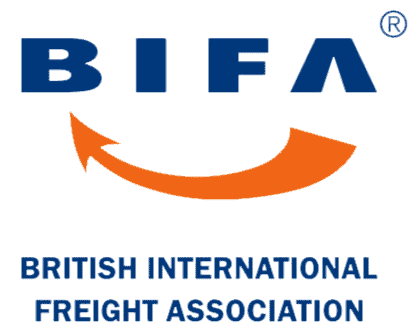Cost-effective deliveries from Qingdao and across the Globe
The Port of Qingdao is a seaport on the Yellow Sea in Qingdao, Shandong Province, in China, and is one of the ten busiest ports globally.
Importing From Qingdao to the UK
The process of importing from Qingdao to the UK is filled with complicated paperwork. The most important documents are the following:
- Bill of Lading
- Commercial invoice
- Packing list
Many beginner importers make mistakes such as losing documents or having contradicting information in their documents, resulting in costly delays, inspections, and fees. Therefore, we have created this guide to help you handle the three most important documents involved when importing from Qingdao to the UK.
The Bill of Lading/Air Waybill
When planning to import or export a shipment, you need a document that provides the details about the shipment and the terms of the shipping contract. In the case of air transport, this document is the air waybill, and in maritime transport, the Sea waybill is also called the Bill of Lading.
The BOL acts as a –
- receipt for shipping,
- as a title of goods, and
- as a contract of carriage.
When you accept a shipping quote from a freight forwarder, the forwarder will draft the BOL and send the draft to you to confirm that the details match what is on the commercial invoice.
The freight forwarder serves the bill of lading when they take control of the goods, either at your supplier’s warehouse or Qingdao port. Forwarders typically release the BOL as three original documents, and all three are required to collect the cargo. Your supplier will need to send you the original BOL or a telex release to present to UK customs once your cargo arrives. If the supplier sends the original BOL via post, then a telex release is not acceptable. Working with the original BOL carries the inherent risk of loss.
Lost Bills of Lading pose a big problem because sea carriers hand out containers based on the BOL. If the BOL is unavailable, then you may not be allowed to collect the goods. If the container remains in the port for too long, it attracts a downtime or demurrage fee.
Import Requirements
So what do you do when you have lost the BOL?
So what do you do when you have lost the BOL?
The local courier company in Qingdao, the exporter, or the importer (you) must prepare additional complicated documents to release the cargo. The forwarder may also charge you a fee to release the cargo without the BOL.
If you lose the Bill of Lading, you will need to prepare and obtain the following documents:
- A written statement of loss;
- Bank guarantee;
- Packing list;
- Commercial invoice;
- Shipper’s approval;
- A copy of the Letter of Credit – if you paid the seller through a Letter of Credit);
- Letter of indemnity – drafted by the shipper;
- Letter of indemnity – drafted by the recipient;
- Formal request to release cargo without the Original Bill of Lading or to issue new Original Bills of Lading
Commercial Invoice
Commercial Invoice
The commercial invoice is a document detailing the financial transaction between you and the supplier, and it acts as proof of purchase. As the buyer, it is your responsibility to ensure that your supplier has issued you a commercial invoice. Both Chinese export and UK import customs require the commercial invoice to calculate the applicable duties and taxes. Unlike the BOL, the commercial invoice does not transfer ownership of the goods to you. Ideally, the commercial invoice is issued in English. If the invoice is issued in Mandarin, at least the detailed description of the goods should be in English. Also, including commodity codes will significantly speed up customs clearance. To avoid fines and costly inspections for smooth customs clearance, ensure that the BOL details match those on the commercial invoice. These details include:
- Your details e.g. name, address, phone number and EORI number.
- exporter’s details
- notify party – forwarders details
- invoice number – matching the number on the Packing List
- invoice date
- order number
- shipping information – forwarding agent and date of export
- a clear description of each item corresponding to the Packing List and Bill of Lading
- HS codes
- Incoterm
- the price of each item
- total sale amount
- payment instructions
- insurance
- origin of goods
- invoice signature with the issuer’s stamp
Packing List
Packing List
A Packing List shows how the seller/forwarder packed the goods for inspection and shipping purposes. The Packing List provides information about your shipment and requires your signature upon the receipt of your goods. The exporter issues the packing list. However, if your freight forwarder repacks the goods at their warehouse, the forwarder bears responsibility of completing the document and attaching it to the goods in a pouch.
We pride ourselves in being friendly experts here at Barrington who will guide you through the shipping process without overwhelming you with jargon or exaggerated fees. Is your supplier sending goods to Qingdao port? Begin your shipping journey with us by requesting a friendly quote.
We will handle all steps of the process. When your goods arrive, you can choose our 24 express delivery to your location or pick up the goods at our warehouse at the Bowden Terminal in Basildon, Essex.


